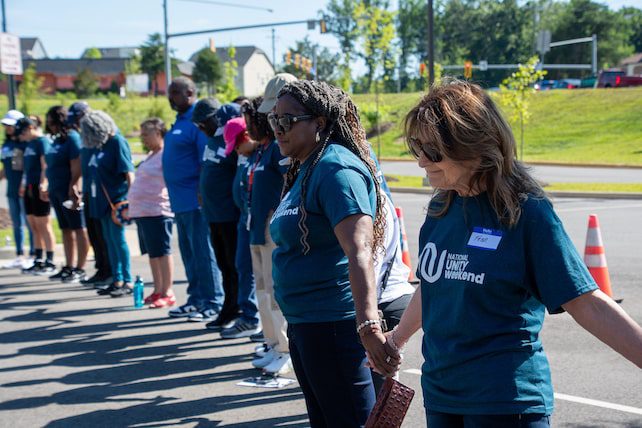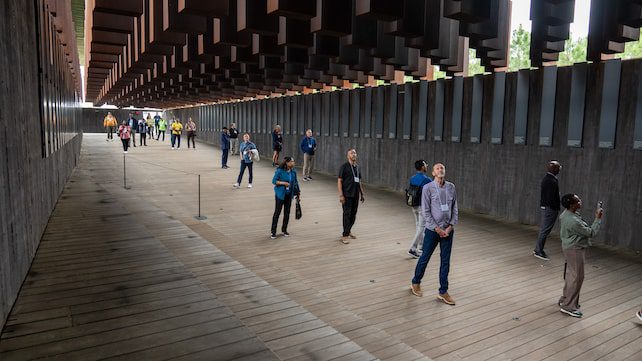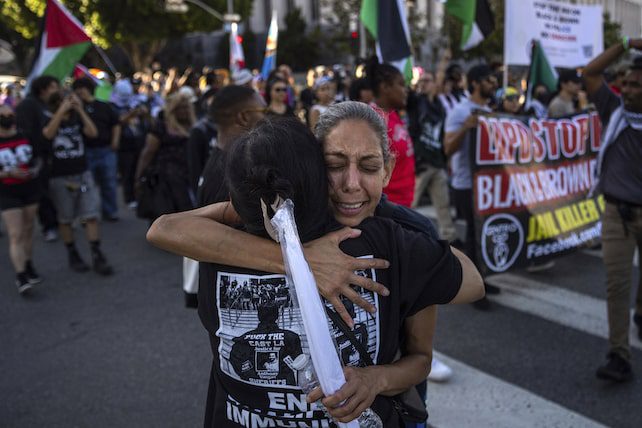(RNS) — Bishop W. Darin Moore of the African Methodist Episcopal Zion Church remembers what it was like in the days after the 2020 murder of George Floyd.
“You saw initiatives being taken by churches, by governmental entities or by corporations to acknowledge first, and then to confront and then to improve racial relations,” he recalled.
Now, said Moore, the leader of eastern North Carolina churches of his historically Black denomination, most of the work to ensure Black history is taught appears to be happening in Black churches. That’s in part due to backlash against what he termed the “bogeyman” critics created as they opposed diversity, equity and inclusion efforts and critical race theory—two concepts that have become politically polarizing terms in recent years.
A new Pew Research Center study found that 27% of Americans surveyed in February 2025 said the increased focus on issues of race and race inequality led to changes that improved the lives of Black people after the death of Floyd, a Black man from Minneapolis. He died when white police officer Derek Chauvin held his knee on Floyd’s neck for more than nine minutes. Chauvin was convicted in 2021 of Floyd’s murder, and three other officers were found guilty of other related charges.
However, almost three-quarters (72%) said the newfound focus on racial matters did not have a great influence on improving Black lives. Back in 2020, 52% thought it would, according to Pew.
RELATED: Black church leader says Target boycott won’t ease until DEI programs return
Across denominations and races, clergy are noticing the emphasis shifting away from race relations that occurred in the wake of Floyd’s death. They’ve seen temporary improvements and then retrenchment but say efforts nevertheless continue to foster understanding and bridge divides.

“Right after George Floyd and Breonna Taylor and others were murdered, there was this swell of people of all different skin hues that came together and marched and made statements,” said the Rev. Jean Hawxhurst, a white United Methodist ecumenist who is president of Churches Uniting in Christ. “Right now, we’re kind of in a complacency,” noting what she views as racist attitudes of the current Trump administration “welcoming in Afrikaners and not welcoming in people with darker colored skin.”
The CUIC committed in 2023 to a three-year period focused on anti-racism, has had quarterly dialogues and may have related book studies in the future. Asked if she sees a change in the relationships between predominantly white and mostly Black churches in her circles, Hawxhurst said, “I wish I could say I had definite examples of yes. I think what I see is the hope. I’m not sure I see yet the living out.”
Walter Kim, the National Association of Evangelicals president, said after an initial “incredible jump in engagement and participation” in racial justice and multiethnic ministries, there was a realization of how complicated the issues are. He said there is a “recalibration” occurring regarding how there are not merely Black and white dimensions to reconciliation, but the need to also involve a range of ethnic groups, including Asian, Hispanic and Native American communities.
For instance, Kim said the NAE found that recent opportunities for in-person interaction were more effective than the online “Racial Justice Assessment Tool” it created in 2023 to provide suggestions of books and online courses based on individual Christians’ answers to a brief survey.
For the last two years, the NAE has held a spiritual retreat with evangelical leaders of color, who often work in predominantly white spaces, for “encouragement and swapping of best practices to stay involved in the long-term labor.”
And in 2024, the NAE gathered dozens of leaders, about 40% white, 40% Black and 20% of other backgrounds, for a forum and tour of The Legacy Museum and other Montgomery, Alabama, properties of the Equal Justice Initiative, including the National Memorial for Peace and Justice, created to remember thousands of lynching victims. Some of the Black participants discovered the names of their forbears, prompting collective lament, Kim said.


